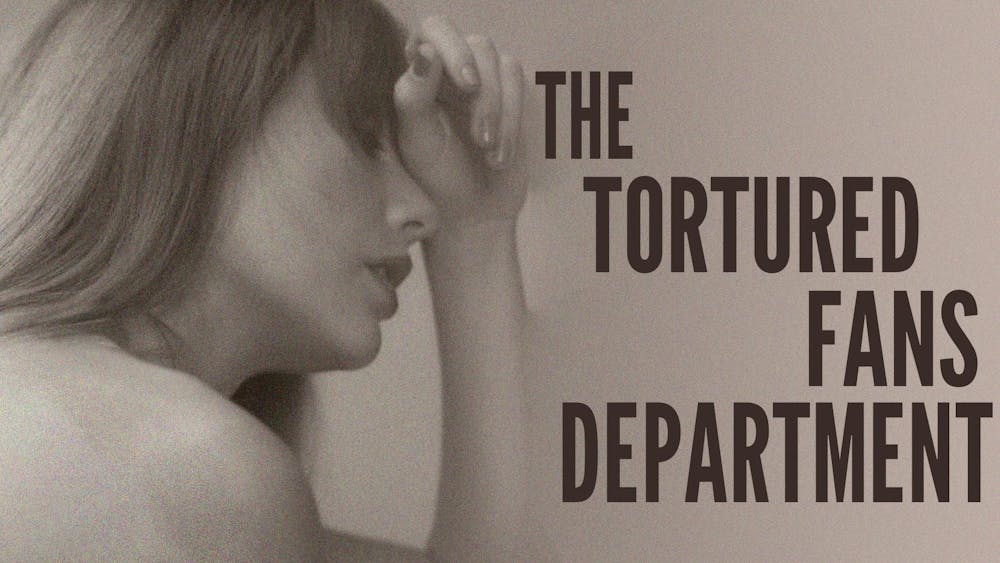The Observer sat down with senior film, theater and television major and director Renee Roden to discuss her student-produced play "On the Verge," by Eric Overmyer, her first production through the Department of Theater at Notre Dame.

The department approached Roden last fall after she directed two student performances to do a show for the fall season in the Philbin Studio Theater. She spent the last nine months traveling to London and Calcutta, during which she assembled her design team, read the script while trekking through the Himalayas, then started production and held auditions on the first day of classes this year.
The four-person cast rehearses six times a week, and will perform "On the Verge" 10 nights in a row starting Thursday.
The Observer: So what's the play about?
Roden: It's a show about these three Victorian women who are all explorers. It's 1880 and they wind up time traveling to the 1950s. This is the first time they're traveling all together. They talk about their travels during the show, and they try to one-up each other. [The play is] largely about how their imaginations work together and about the friendship these three women have together.

The Observer: What do you like about this play?
Roden: I love women interacting with each other. They're so intelligent and they're so funny. I think what makes it stand out more than just a funny play is that the language is so dense and beautiful and rich. The first time I read this script I had to pull out a dictionary. I didn't know what peregrinations meant. There's such a rich world in each word.
The Observer: Do you think then that the script will fly over the heads of some Notre Dame students?
Roden: I don't think so. The way the actors bring the story to life and the words fit so well in their mouths. It's about incarnating the language. You can't say a beautiful line and just stand there - you have to embody it. You need to own the language and tell the story. There's a reason the language is there. If you tell the story, the language will help you.
The Observer: How do you practice embodying language like that?
Roden: You have to separate the two components. There are a lot of rehearsals where we practice physicality, where we get them out of their heads and into their bodies and just playing with one another and not thinking and just doing. Then we did a lot of one-on-one rehearsals, because they have a lot of monologues.
When I was casting I was looking for people who already knew how to deal with language. It is a lot like Shakespeare. ... It's a great way to express emotion and telling a story, it's just not the way people talk. We are really approaching it from a character aspect. If you understand the person, you understand why they are choosing those words.
The Observer: What made you choose this play?
Roden: I first encountered this play senior year in high school. One of my counselors, Leah Adcock-Scarr, gave it to me and said, 'You're going to do this play someday,' and I fell in love with it.
There's a nice cyclical aspect to it. I first read it when I was making those big college decisions, and now it's senior year of college and I'm making all these big life decisions.
The Observer: Did all of your travel over the past year change the way you see the play?
Roden: I went to the Himalayas while I was in India - they talk about the Himalayas in the play. I've grown to identify with two of the female characters. At the heart of one of the girls' desire to travel is because she's trying to find a home, while one girl has an incurable wanderlust. I think traveling has led me to understand the characters better than I wouldn't have been able to before.
The Observer: It sounds like this show will appeal to girls, but would a guy want to see it?
Roden: Absolutely, it's a very wise show; it's also really funny. These women are ridiculous and silly, and [girls] would watch a show about three guys. [The female characters] do bring a woman's perspective, but they're not talking about things that are specific to women.
The Observer: So what are you thinking about this final week of production?
Roden: I want to get to opening [laughs]. No, I'm trying to be patient. Tech is sometimes long. In rehearsal you can just be like, 'a rainstorm happens,' and then focus on the acting. Now it's more about, 'How do we make a rainstorm?' You'll have to come and see how it happens. There's snow and ice and snowballs.
The Observer: What will you do once the show is over?
Roden: [Laughs] I don't know. [A director's] job ends at opening, then the show is in the actors' and the stage manager's hands. Most directors come to opening and then don't come back. I don't want to be selfish, though, I want to be present. Right now it's like I have a two-year-old child and it's really stressful and it needs my attention because it can't take care of itself, but then the fun of having a two-year-old is that it's yours. But once opening happens, it's like having a teenager that's off to college and doing its own thing and doesn't need you anymore.
The Observer: Who do you credit as a mentor or inspiration through this whole process?
Roden: Adcock-Scarr is my hero - she's getting her MFA for directing at Seattle University. She taught me how to be an artist, how to make theater that is honest and imaginative that's not trying to be cinematic or realistic. She introduced me to theater as a way to draw the artist out of every single human being.
Tickets are $5 for students and $10 for regular admission.
Contact Meghan Thomassen at mthomass@nd.edu.












